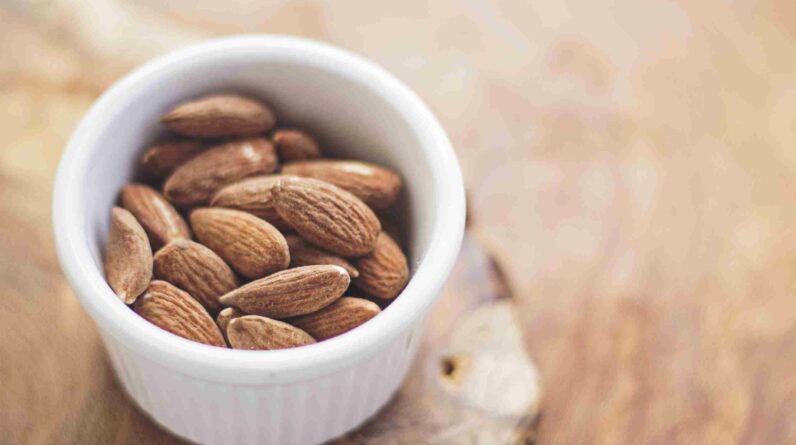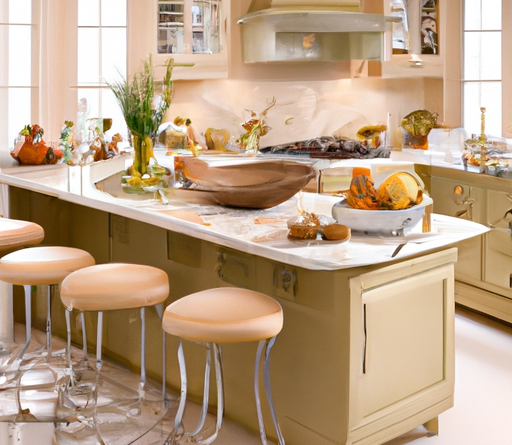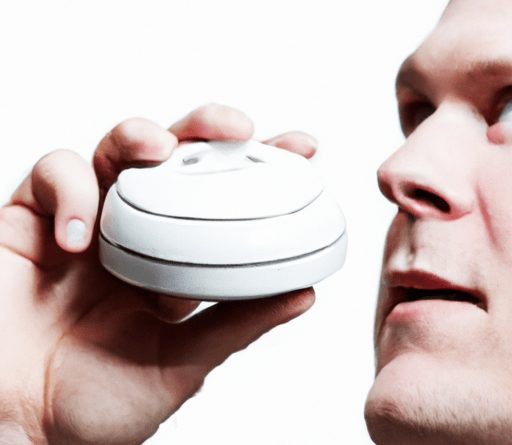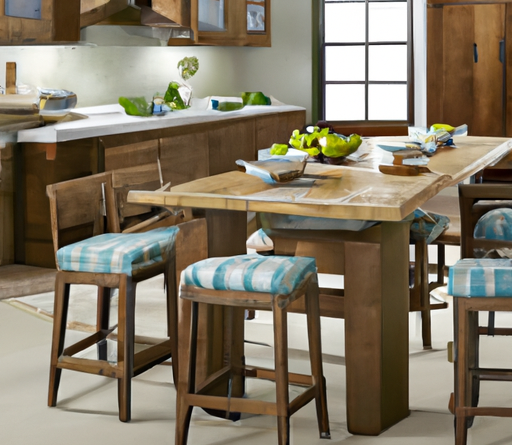Aluminum foil is a common household item that we often reach for when cooking or storing food. However, have you ever wondered if it is actually safe to use aluminum foil in the oven or microwave? In this article, we will explore the potential risks and benefits of using aluminum foil in these appliances, providing you with essential knowledge to make informed decisions about food preparation and safety. So, let’s break down the facts and find out whether or not we should be reaching for that roll of aluminum foil next time we cook!
Heat and Safety
What happens when aluminum foil is heated?
When aluminum foil is heated, it undergoes a process called thermal expansion. This means that as heat is applied, the aluminum foil expands, becoming larger in size. This expansion occurs due to the increase in the kinetic energy of the aluminum atoms, causing them to move more freely. It is important to note that aluminum foil has a relatively low melting point, around 1,220 degrees Fahrenheit (660 degrees Celsius), so extreme heat can cause the foil to melt or deform.
Can aluminum foil catch fire?
Aluminum foil itself is not flammable and does not catch fire easily. However, it is important to exercise caution when using aluminum foil around open flames or high heat sources, such as gas stoves or grills. Direct exposure to a flame can cause the aluminum foil to burn or even ignite nearby flammable materials. It is always advisable to keep aluminum foil at a safe distance from sources of intense heat.
Does aluminum foil release toxic fumes when heated?
No, aluminum foil does not release toxic fumes when heated. Aluminum itself is a non-toxic metal, and when heated, it does not produce any harmful gases. However, it is essential to maintain good ventilation when using aluminum foil in high-temperature cooking methods, such as grilling or broiling. This ensures that any smoke or fumes from other ingredients or food residues are properly vented out.
Is using aluminum foil in the oven safe?
Using aluminum foil in the oven is generally safe as long as it is used correctly and under the right conditions. Aluminum foil can be used to line baking sheets or pans, providing a convenient non-stick surface and easy cleanup. However, it is crucial to make sure that the aluminum foil does not come into direct contact with the heating element or walls of the oven. If it does, the foil may melt or catch fire, posing a safety risk.
Is using aluminum foil in the microwave safe?
While aluminum foil can safely be used in the oven, it should not be used in the microwave. Microwaves work by generating electromagnetic waves that cause water molecules in the food to vibrate and generate heat. However, aluminum foil is a reflective metal and can reflect these waves instead of allowing them to penetrate the food. This can cause the foil to become extremely hot and potentially lead to a fire hazard. It is important to follow manufacturer’s guidelines and avoid using aluminum foil in the microwave.
Aluminum Foil and Food
Can aluminum foil contaminate food?
When used properly, aluminum foil does not typically contaminate food. It is a hygienic and safe material for food storage and cooking. However, there are certain conditions that can lead to potential contamination. If acidic or salty foods are in direct contact with aluminum foil for an extended period, a reaction may occur, resulting in a metallic taste. It is advisable to avoid using aluminum foil for these types of foods and instead opt for alternative storage or cooking methods.
Can aluminum foil react with certain foods?
Yes, aluminum foil can react with certain foods, especially those that are acidic or salty. This reaction can cause the aluminum to break down and transfer into the food, altering its taste and potentially posing health concerns. Foods such as tomato sauce, lemon juice, or vinegar should not be in direct contact with aluminum foil for prolonged periods. To avoid any potential reactions, it is best to use alternative materials, such as glass or ceramic containers, for storing or cooking acidic or salty foods.
Does using aluminum foil affect cooking times?
Using aluminum foil can affect cooking times, but it depends on how it is used. When foods are wrapped in aluminum foil, they create a barrier that traps heat and moisture. This can result in faster and more even cooking, leading to reduced cooking times. On the other hand, using aluminum foil to cover food during cooking can slow down cooking times, as the foil acts as an insulator and prevents direct heat from reaching the food. Overall, it is important to follow recipe instructions and adjust cooking times accordingly when using aluminum foil.
Is it safe to use aluminum foil for baking?
Yes, it is safe to use aluminum foil for baking. Aluminum foil is commonly used in baking as a way to prevent sticking and facilitate even cooking. It is important to note that when using aluminum foil for baking, it is best to place it on a baking sheet or pan to provide stability and prevent it from tearing or puncturing. Additionally, it is advisable to lightly grease the foil or use non-stick cooking spray to further minimize the risk of sticking.
Is aluminum foil safe for reheating food?
Aluminum foil can be safely used for reheating food, with a few considerations. It is important to ensure that the aluminum foil is tightly sealed around the food to retain moisture and prevent any leakage. When reheating in the oven, it is crucial to set the temperature at an appropriate level to avoid burning or melting the foil. When reheating in the microwave, it is important to transfer the food from the aluminum foil to a microwave-safe dish to prevent any potential hazards.

Health Concerns
Does aluminum leach into food from aluminum foil?
There is a possibility of aluminum leaching into food from aluminum foil, especially when it comes into contact with acidic or salty foods. Acidic foods can cause a reaction with the aluminum foil, resulting in the transfer of small amounts of aluminum into the food. However, the actual amount of aluminum leached is generally considered to be minimal and within the safe limits set by regulatory agencies. To minimize any potential leaching, it is best to avoid using aluminum foil for acidic or salty foods and choose alternative food storage or cooking methods.
Can aluminum foil cause health problems?
Aluminum foil itself is considered safe for everyday use in food preparation and storage. However, excessive exposure to aluminum can potentially lead to health problems. Studies have suggested a potential link between elevated aluminum levels and certain health conditions, such as Alzheimer’s disease. While the evidence is not conclusive, it is best to minimize direct contact between aluminum foil and certain foods, follow recommended guidelines, and prioritize a balanced diet to reduce any potential health risks.
Is it safe to use aluminum foil for grilling?
Using aluminum foil for grilling is generally safe when done correctly. It can help to retain moisture and prevent food from sticking to the grill grates. However, it is important to use caution and avoid certain practices that can pose a safety risk. For example, wrapping an entire piece of meat in aluminum foil without any ventilation can lead to the accumulation of harmful smoke and steam. It is advisable to create ventilation holes in the foil or use a perforated grilling tray specifically designed for grilling with aluminum foil.
How to minimize potential health risks when using aluminum foil?
To minimize potential health risks when using aluminum foil, follow these recommendations:
-
Choose the right type and quality of aluminum foil: Look for foil that is labeled as “food-grade” and avoid using thinner or cheaper alternatives that may tear or puncture easily.
-
Avoid using aluminum foil for acidic or salty foods: Acidic foods, such as tomatoes or citrus fruits, and salty foods can react with aluminum foil, potentially causing a transfer of aluminum into the food. Opt for alternative storage or cooking methods for these types of foods.
-
Use aluminum foil as a cover or wrap, not as a container: Avoid using aluminum foil as a container for liquids or acidic foods, as this can increase the risk of aluminum leaching. Instead, use it as a cover or wrap for foods during cooking or storage.
-
Do not microwave aluminum foil without proper precautions: Microwaving aluminum foil can cause a fire hazard and is not recommended. Always transfer food from aluminum foil to a microwave-safe container before heating.
-
Follow manufacturer’s instructions and guidelines: Different brands and types of aluminum foil may have specific instructions and guidelines for safe use. It is important to read and follow these instructions to ensure the safe handling and usage of aluminum foil.
-
Use alternatives to aluminum foil whenever possible: If you are concerned about the potential health risks associated with aluminum foil, consider using alternative materials such as parchment paper, silicone baking mats, or glass containers for cooking, baking, and food storage.
Alternative Uses
Can aluminum foil be used for insulation?
Aluminum foil can be used as a temporary form of insulation in certain situations. Its reflective properties can help to reflect heat back towards its source, making it useful for insulating windows or doors during extreme weather conditions. However, it is important to note that aluminum foil should not be considered a long-term or permanent solution for insulation. For more effective insulation, it is advisable to use proper insulation materials designed for the specific purpose.
Can aluminum foil be used for cleaning?
Yes, aluminum foil can be used for cleaning various surfaces and items. Its abrasive nature can help remove stubborn stains or grime without scratching delicate surfaces. Aluminum foil is commonly used to clean silverware or to scrub dirty pans and pots. However, caution should be exercised when using aluminum foil on delicate or non-stick surfaces, as it can cause scratching or damage. It is advisable to test a small, inconspicuous area before using aluminum foil for cleaning.
Can aluminum foil be used for storing food?
Yes, aluminum foil can be used for storing food. It provides a convenient way to wrap or cover food, helping to keep it fresh and protect it from drying out. When using aluminum foil for food storage, it is important to securely wrap or cover the food to prevent air or moisture from entering. This will help to maintain the quality and freshness of the stored food. However, as mentioned earlier, it is advisable to avoid using aluminum foil for foods that are acidic or salty.
Can aluminum foil be reused?
Yes, aluminum foil can be reused multiple times if it remains in good condition. After using aluminum foil, check for any holes or tears. If the foil is still intact and clean, it can be rinsed and reused for similar purposes. However, if the foil is heavily soiled or torn, it is best to dispose of it and use a new piece. Recycling aluminum foil is also an environmentally friendly option, as it can be easily recycled into new aluminum products.

Tips and Recommendations
Choose the right type and quality of aluminum foil
When selecting aluminum foil, opt for a type that is specifically labeled as “food-grade” and is of good quality. Food-grade aluminum foil is designed to be safe for contact with food and undergoes stringent quality checks. Choosing a reliable and high-quality brand will minimize the risk of tearing, puncturing, or other issues during use.
Avoid using aluminum foil for acidic or salty foods
To avoid potential reactions and aluminum transfer, it is best to avoid using aluminum foil for acidic or salty foods. Opt for alternative containers or storage methods, such as glass or ceramic, for these types of foods.
Use aluminum foil as a cover or wrap, not as a container
Aluminum foil is best used as a cover or wrap for food during cooking or storage. Avoid using it as a container for liquids or acidic foods, as these can increase the risk of aluminum leaching. If you need to store liquids or acidic foods, consider using alternative materials, such as glass or BPA-free plastic containers.
Do not microwave aluminum foil without proper precautions
It is important to never microwave aluminum foil without taking proper precautions. Microwaving aluminum foil can cause a fire hazard and damage the microwave. Always transfer food from aluminum foil to a microwave-safe container before heating.
Follow manufacturer’s instructions and guidelines
Different brands and types of aluminum foil may have specific instructions and guidelines for safe use. It is important to read and follow these instructions to ensure the safe handling and usage of aluminum foil. Following the manufacturer’s guidelines will help prevent accidents and improve overall safety.
Use alternatives to aluminum foil whenever possible
If you have concerns about the potential health risks associated with aluminum foil, consider using alternative materials whenever possible. For cooking or baking, parchment paper or silicone baking mats can serve as excellent non-stick options. Glass or ceramic containers are great alternatives for food storage. By opting for these alternatives, you can minimize exposure to aluminum and promote safer food preparation and storage practices.
Conclusion
Aluminum foil is a versatile tool that can be used in various cooking and household applications. When used correctly and under the appropriate conditions, aluminum foil is generally safe for use. However, it is important to be aware of its limitations and potential risks. While aluminum foil does not release toxic fumes or contaminate food under normal conditions, precautions should be taken to avoid direct contact with certain types of foods, such as acidic or salty varieties. Additionally, it is important to follow manufacturer’s instructions, choose high-quality foil, and consider alternatives whenever possible for a healthier and safer approach to food preparation and storage. By understanding the properties and best practices of using aluminum foil, we can enjoy its benefits while minimizing any potential risks.










